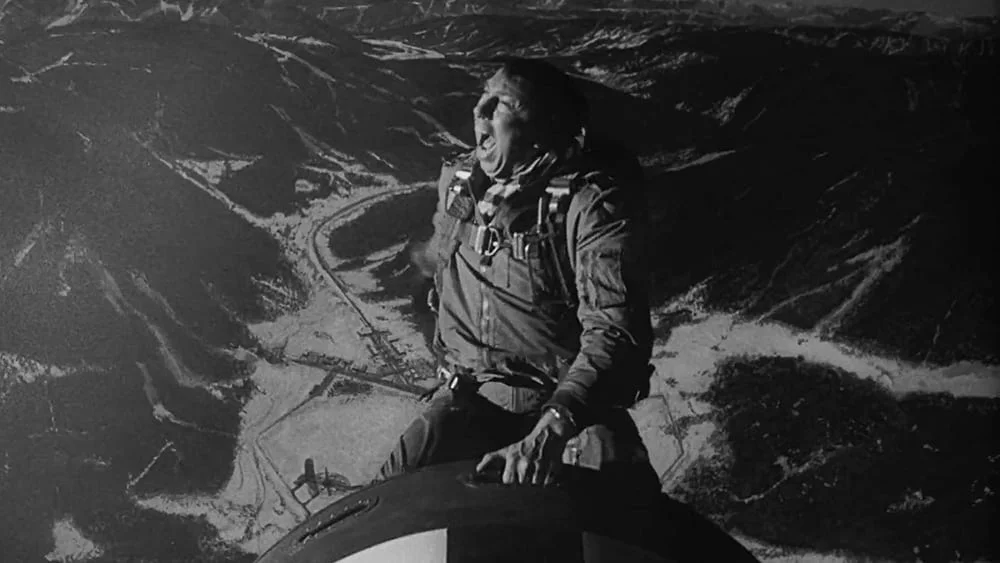This is the latest in an ongoing series about great needle drops throughout film history. What’s a needle drop? It’s the use of pop songs not created for the film it appears in — existing pieces of classical music (shoutout Bob Fosse’s use of Antonio Vivaldi’s “Concerto in G” in “All That Jazz”) or songs written specifically for the movie (shoutout Spike Lee’s use of Public Enemy’s “Fight the Power” in “Do The Right Thing”) might get their own special pieces. Movies have influenced my taste in music more than anything else, so I wanted to highlight and celebrate that influence here.
One section of Don DeLillo’s epic novel “Underworld” is a collection of various scenes of different characters in the United States in the early 1960s. One of these threads follows real-life stand-up comedian Lenny Bruce as he crafts routines around the ongoing Cuban Missile Crisis. Thanks to his manic, off-the-cuff delivery, Bruce touches on several aspects of American culture and politics with his trademark vulgar style. But it always comes back to the looming threat of nuclear annihilation. Like an intrusive thought at the most inappropriate time, Bruce screams his big punchline, “We’re all gonna die!”
This week, I revisited Stanley Kubrick’s satirical masterpiece “Dr. Strangelove” for its 60th anniversary, I couldn’t shake these sequences in “Underworld” from my mind (and only partly because I just finished reading it recently). The use of such blunt gallows humor in the face of impending doom by both Bruce (or at least DeLillo’s version of Bruce) and Kubrick creates distance between you and the potential threat. In a world where cynicism is the only way to make sense of the absurdity around you, taking on a more irreverent outlook on life is an effective coping mechanism.
Kubrick’s big punchline, like Bruce’s, is also “We’re all gonna die!” But rather than scream it at the top of his lungs (or, rather, one of his actor’s lungs), he decides to take a more ironic approach. Kubrick’s goal is to create comedy through dissonance rather than immediacy, so while he does show a couple of minutes of footage of exploding nuclear weapons, the humor comes from his use of Vera Lynn’s 1939 song “We’ll Meet Again” set to this footage.
Lyrically, the needle drop works on two levels. One, the title line, “We’ll meet again,” is dripping with irony when set against footage of a nuclear holocaust. We don’t see the remnants of the destruction, but we can assume there’s nothing left. While cities and populations may be able to withstand one nuclear strike, seeing explosion after explosion hammers in the idea that nothing will be alive at the end of this, secret bunker or not. You’re never meeting anyone you know ever again. Maybe you have a bit of hope if you believe in an afterlife, but Kubrick was an atheist. He meant this in its bleakest context.
The lyrics also can be heard as a wistful goodbye to a time when the threat of nuclear attack didn’t exist. The song was written in the early years of the Second World War. There’s no intent in the original song to speak on a pre and post-nuclear world because they didn’t know it was possible. But Kubrick uses that hindsight to recontextualize the tune into a knowing farewell to a bygone era, rather than the uncertainty about a personal relationship that Lynn sings of.
Even if you aren’t paying attention to the lyrics, you pick up on the comic dissonance that Kubrick is trying to create. When you listen to “We’ll Meet Again,” you hear a slow, romantic, possibly melancholic (depending on how you read it) ballad. Kubrick taps into that melancholy and turns it into deep despair and hilarious absurdity by pairing the music with rapid footage of mass death and destruction. Nothing is as it should be in the world of “Dr. Strangelove,” and Kubrick wants you to be left with that feeling because nothing is as it should be in the real world either.

